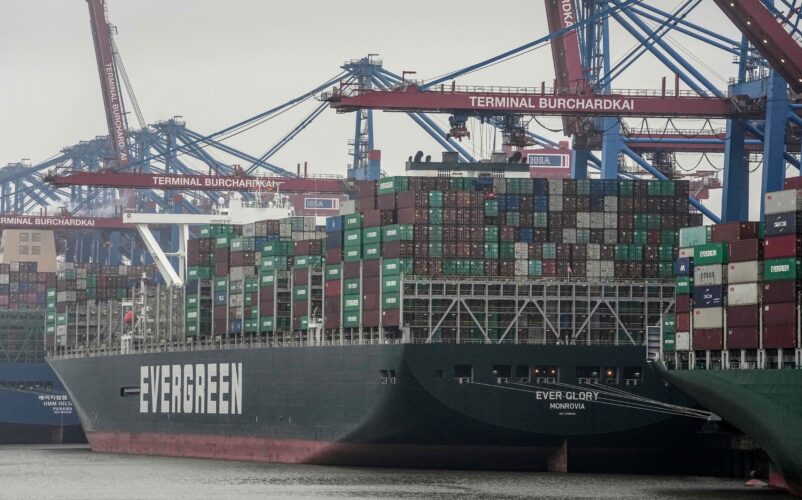On Monday, multinational oil company BP announced it would be stopping all shipping to the Red Sea due to the prevalence of Houthi attacks off the shore of Yemen. BP is joining the ranks of shipping giants Maersk and Hapag-Lloyd AG as well as Taiwanese container shipping line Evergreen.
Evergreen also announced it would be temporarily rejecting Israeli cargo due to the attacks. All of the shipping lines will be rerouting their traffic around the Cape of Good Hope until further notice.
Learn the benefits of becoming a Valuetainment Member and subscribe today!
“In light of the deteriorating security situation for shipping in the Red Sea, BP has decided to temporarily pause all transits through the Red Sea,” the company said in a statement. “We will keep this precautionary pause under ongoing review, subject to circumstances as they evolve in the region.”
Related: Suspected Houthi Rebels Hijack Ship, Threaten US Navy Off Yemen Coast
After the news broke, the price of crude oil rose slightly before coming back down later in the day. Other effects on the market included futures for natural gas in Europe.
Other shipping companies that have made similar announcements include MSC and CMA GGM. Houthi rebels attacked two MSC vessels on Friday after having claimed an attack on a Maersk ship on Thursday.
JUST IN – Oil giant BP and Taiwan's Evergreen shipping line halt all transits through the Red Sea.
— Disclose.tv (@disclosetv) December 18, 2023
“The situation is further deteriorating and concern of safety is increasing,” French-based CMA CGM said on Saturday. “CMA CGM is taking all necessary steps to preserve its transportation services for its customers.”
Market analysts warn that a prolonged blockage of the Red Sea, and the highly important Suez Canal, could have massive ramifications on the global economy. “Global freight can expect to see rate increases, rerouting and longer transit times,” said Judah Levine, head of research at logistics firm Freightos. Analysts at investment bank UBS said, “one week of meaningful capacity rerouting could have ripple effects for several months ahead, after a lag of a few weeks.” UBS explained that some 30 percent of global container trade is trafficked through the Suez.
Related: Houthi Militants from Yemen Hijack “Israel-Linked” Cargo Ship in the Red Sea
Higher rates for shipping, possibly meaning more expensive goods for consumers, is even more likely given the fact that the Panama Canal is also experiencing massive bottlenecks due to an unusual drought affecting Panama. Panama Canal Authorities plan to limit the amount of boats allowed to sail through the passageway even more in 2024. By Feb. 1, the government-run entity plans to limit the number of vessels to just 18 per day to conserve on water for the dry season. Experts warn that traffic will not return to normal levels until Q3 2024, meaning the rerouting will only continue or otherwise the bottleneck will expand.
As Valuetainment has previously reported, Houthi militants have been attacking and hijacking ships traveling to and from the Suez Canal off the coast of Yemen in the Red Sea. Their stated reason is to retaliate against the United States and its global allies for supporting Israel in its war against Islamist terrorist group Hamas. The Houthis even attacked an American warship in early December.
In response to the situation, White House National Security Council spokesman Eduardo Maia Silva said: “[the U.S.] will continue to consider options and take coordinated, multilateral action to confront these unacceptable threats and attacks in the Red Sea.”


















Add comment